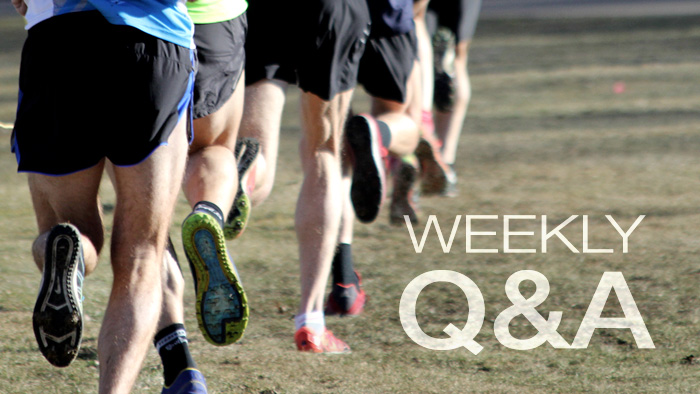Have a question about running? You’re in the right place. Every Tuesday, world-renowned coach, author and athlete Hal Higdon posts and answers athlete questions here. You can submit your question by joining the discussions on Hal Higdon’s Virtual Training Bulletin Boards.
QUESTION
How do you manage a major temperature change, especially in the spring? Early May I ran my first marathon and ended up cramping due to the heat and insufficient hydration. I went only halfway. Now I am scheduled to rerun my “first” two weeks later, but weather forecasts do not look promising: Low 80’s! I want to avoid cramping and this time go the full 26.2. I am in Northern Illinois and my training runs this winter were either inside on a treadmill or outside in much colder weather than I encountered in the race.
HAL’S ANSWER
There’s no substitute for warm-weather training. This is why when temps peak, runners struggle more in the spring than in the fall. They don’t have a full summer to acclimate themselves. To prepare for hot weather, you train in hot weather, which is not always available in January.
Several good friends of mine, Olympians, actually would train wearing two or three warm-ups, even in the summer, to simulate the hottest of hot weather. I’m not entirely sure this works, but one way to beat the heat is to recognize any temperature spike early during the race or, better, before. A logical, planned pace based on your previous race times will just not work. You need to slow down—and slow down early. If your temperature spikes because of a too-fast start, you will not quickly get it down no matter how much you drink.
Also, in warm weather I shade the percentage of sports drink vs. water I consume. Whereas I might drink 50% water vs. 50% sports drink when it is 50 degrees or less, I might shift to 75% vs. 25% at 70 degrees or more. That’s because too much sugary sports drink bothers my stomach. Too late for your coming race, but you need to master the art of rehydration during training runs. As for weather forecasts in the 80’s, I don’t trust forecasts more than a few days out. Maybe you will get lucky and catch a cold front passing through.


